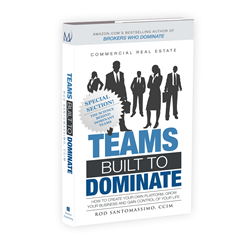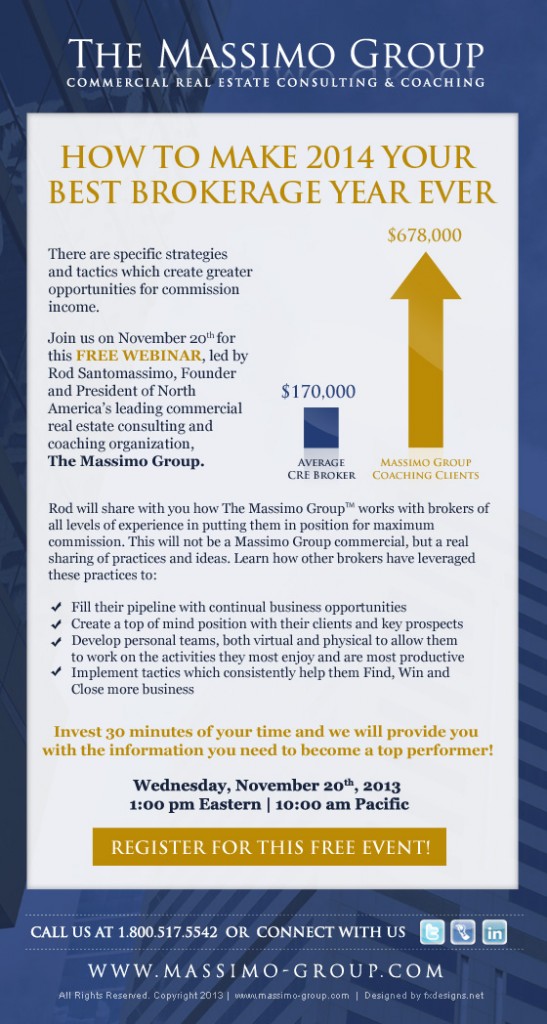Five or so years ago, I was on a call with my coach, Rod Santomassimo. Rod is the founder and president of the Massimo Group, and he had been coaching me through the purchase of my father’s brokerage firm.
I remember him asking me if I would consider allowing him to profile me in a book he was writing. He asked me to think about it and let him know.
I thought, he is asking me to allow him to tell my story to the industry and create a great amount of presence for me that I couldn’t do on my own. Five seconds later, I let him know I would be honored.
That book, Brokers Who Dominate – 8 Traits of Top Producers, became an Amazon.com bestseller. If you are a CRE professional, I highly recommend.
As of yesterday, Rod has launched his second book, Teams Built to Dominate – How to Create Your Own Platform, Grow Your Business And Gain control of Your Life.
I wanted to share this you for a couple of reasons. First, I received an early copy of the book and it is fantastic. Second, I have a special code to offer you that will get you 20% off. And third, Rod and I shot a video series that goes along with the book – Team Building Toolbox – where we take you through how to implement the strategies and best practices of team building that Rod takes you through in the book.
And the video series is being offered free this week if you buy the book. But more on how to take advantage of this $300 value later.
The 5 Reasons You Need a Team…yes, even you!
- A team allows you to leverage skills beyond yourself – If you are a producer, there are activities you do that generate high income. There are other activities that you do that are low dollar activities. A team allows you to put in place people with strengths in those low dollar activities. You can delegate to them. So no longer do you need to do $20/hr work. Plus, this frees you up to do those high dollar tasks that only you can do. This leads to exponential growth!
- A team removes you as the bottleneck – When you work as a solopreneur, you have to do everything. This makes you the bottleneck. John Maxwell calls this the Law of the Lid in his bestseller, The 21 Irrefutable Laws of Leadership. This just means that you can’t grow beyond yourself. You are the lid that prevents it. But with a team, you can break through your personal ceiling and grow.
- A team prevents burnout – Most of us have experienced burnout – that hopeless feeling that nags at you. Imagine if you had a team to handle all the activities you hated doing. That should put a smile on your face!
- A team brings additional perspectives – Many hard-charging producers don’t like to think of this point. The truth is, there are many perspectives you don’t have that a team brings. It is also true that you don’t always have the best perspective, and other sets of eyeballs can lead to success in areas you will fail on your own.
- A team challenges you – When you work on your own, you are only challenged to the extent you can muster motivation and discipline on your own. But when you build a team, those team members will challenge you. They will expect your best. They will push you. This is a reason I’ve had a coach for so many years. I need to pushed.











